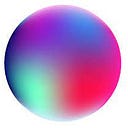Member-only story
SCIENCEY STUFF:
X-Rays? Nope. More Like Laser Echolocation!
Just when you thought things couldn’t get any crazier…
Dear you,
If you’ve been on the internet (ever), you’ve probably seen this term being thrown around a lot:
“Exponential Technologies.”
 When you hear that buzz word, what comes to mind? Let me guess — maybe you thought of big-hitters like AI, alternative energy, or even colonizing the final frontier with space exploration. At least, those were some of the highly-publicized, controversial, and obvious ones.
When you hear that buzz word, what comes to mind? Let me guess — maybe you thought of big-hitters like AI, alternative energy, or even colonizing the final frontier with space exploration. At least, those were some of the highly-publicized, controversial, and obvious ones.
But what about the one that’s staring you in the face? No, I’m not talking about the consumer electronics revolution that was responsible for your handy-dandy PC or phone. I’m talking about the thousands of LEDs and electronic light sources that power your screen, and the billions more that you might not even notice all around you.
From lightbulbs to neon signs, to lasers built to shoot planes straight out of the sky — every time you’ve ever experienced light, you can thank the (insanely) underrated field of photonics.
Well, even if photonics might be underrated today, it feels like the tip of a massive iceberg. A whole lot similar to the revolutions that…
